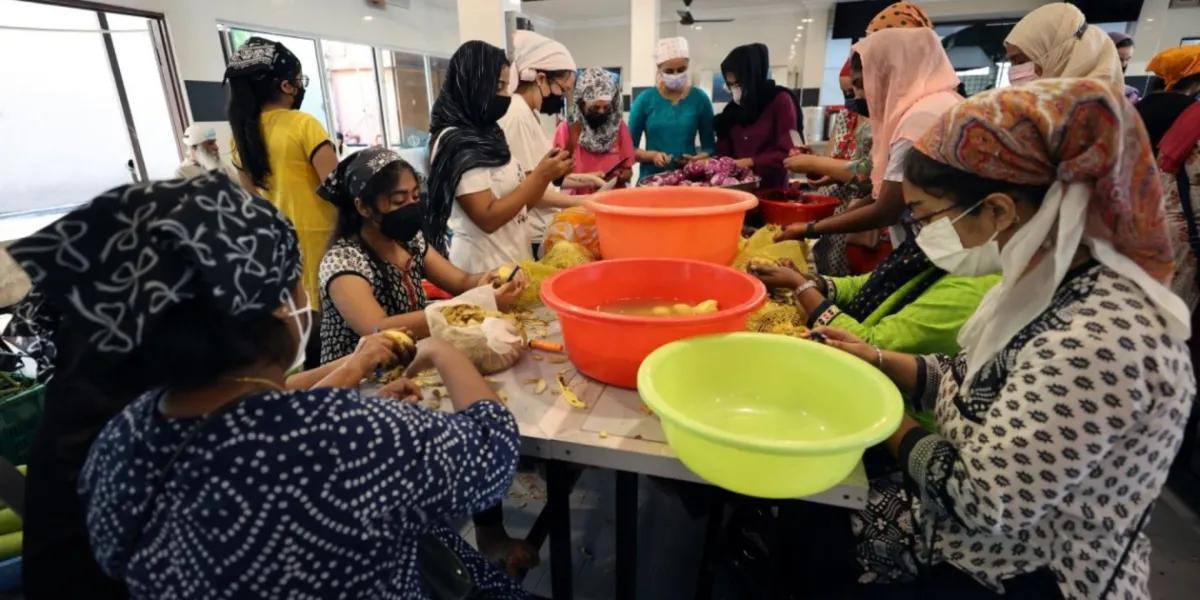The future belongs to the youth, it's time we listen to them
I have just done a scan of newspaper articles and social media channels over the last six weeks to try to understand public perceptions of the response to the December 2021 floods more clearly. I was immediately struck by the number of articles about youth volunteerism and activism during this terrible event.
In the first week of February 2022, the Planetary Health Centre that I manage at Sunway University convened our second youth town hall. These town halls provide an opportunity for us to engage with young people from across Malaysia and discuss planetary health issues with them.
Through the news articles and my discussions with the town hall participants, I reflected on the simplicity and clarity of their actions and feedback. Their key message is that the poorly managed response to the floods cannot be allowed to happen again.
They also recognised that a key missing ingredient at the time was effective coordination and leadership by the authorities, especially for NGOs and individuals who pitched in to help flood-affected people; something the Prime Minister and government have courageously acknowledged.
But beyond this, what was crystal clear in their message was that our country is poorly prepared for the larger planetary health crisis that is all too clearly now upon us, and which today’s young people will be responsible for addressing as its impacts increase all too soon.
My key takeaway is that there is a huge desire on the part of young people to become more engaged in the governance of this country, and that much of this is driven by massive concern for the damage caused to our lived environment by our current completely unsustainable management of natural resources and the general lack of concern for the consequences of this mismanagement.
They see that we must live up to our national and international commitments around climate change, carbon emission reduction, sustainable development and, by extension, planetary health and thus reposition how we live our lives so that people and planet can thrive harmoniously.
As Meredith Weiss, an expert on Malaysian politics, wrote in a paper this month for Singapore’s S. Rajaratnam School of International Studies, “Youth are critically important to political change, beyond short-term electoral fluctuations, especially in cultivating new political sensibilities and initiatives pitched to influence not just their peers, but also society as a whole.”
Malaysia is, I believe, starting to grasp the truth of this but smear campaigns against young people during the flood response also indicate political nervousness over the growing influence of youth voices and action in our society. This reaction is short- sighted and misses the opportunity to engage young people meaningfully.
In line with my belief that we need to not only talk but also act, in addition to the town halls, which provide a venue to exchange views on planetary health and start the process of helping young people to mobilise around planetary health principles, Sunway University is introducing a mandatory planetary health community service course. It is piloting now and by 2024 will need to be taken by all students.
The course aims to ensure that students can immerse themselves in planetary health discourse and implement a project which connects their specialist area of study to planetary health.
I would like to see this course as a pilot which can be rolled out across academia in Malaysia and as a basis for planetary health being taught as a subject in schools. Our emerging leaders need to understand planetary health – and there is no better place to get this underway than in our education system.
But beyond this work we need to engage more broadly with young people. Young leaders are already there – keen, passionate, clear-thinking and filled with energy to mobilise their peers. Providing a space for discussion and debate on how to take their agenda forward is a personal priority.
As the voting age drops to 18 it’s time to recognise that young people can and will play a greater role in shaping our country. Helping to ensure that their collective voice is focused on a sustainable future for Malaysia, where people and planet can thrive in harmony, must be a priority for those of us who can begin the process of sharing policy and operational space and supporting their emerging leadership.
So I call on our political class to take time to listen to the wisdom of our youth leaders and advocates, to engage with them and to recognise that the future belongs to them, not to us.
This article was published in The Star Online. Read it here.




